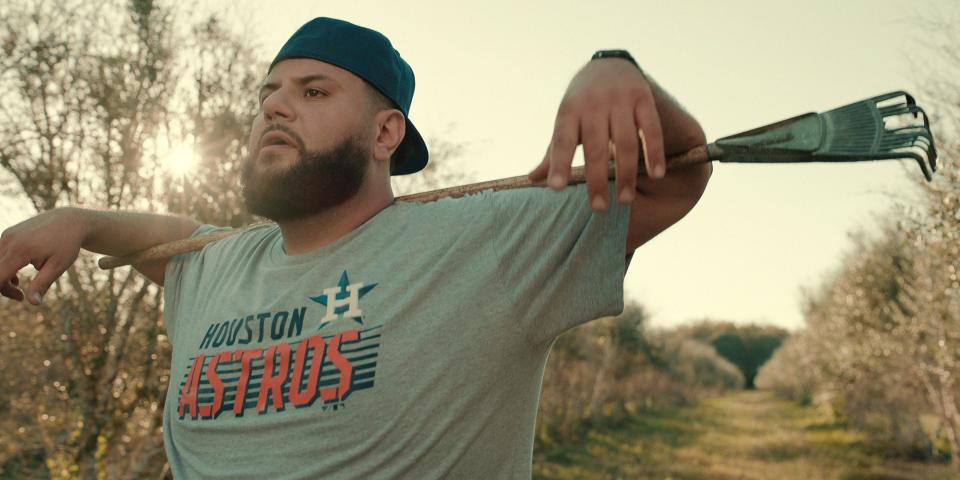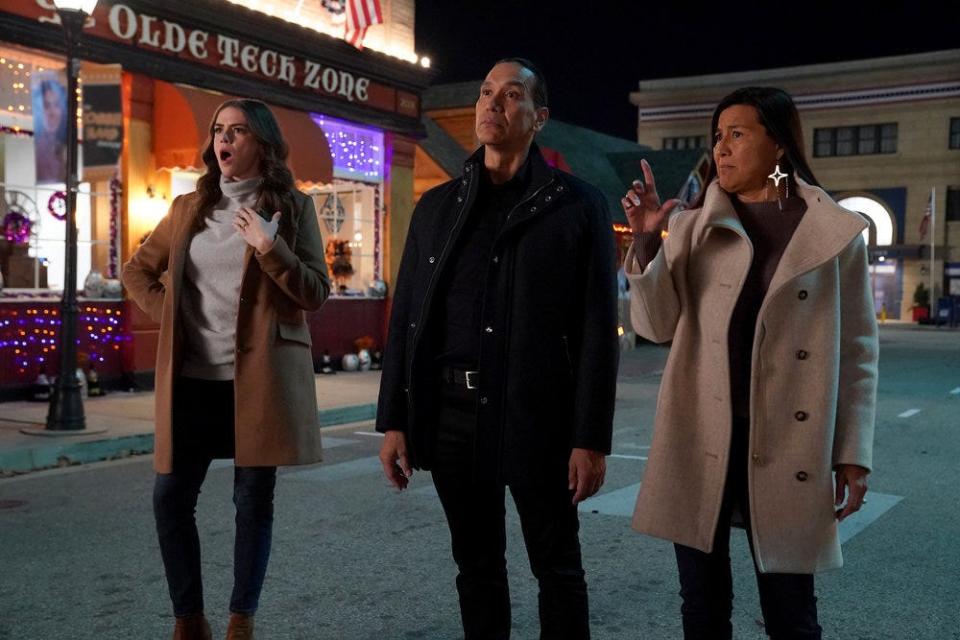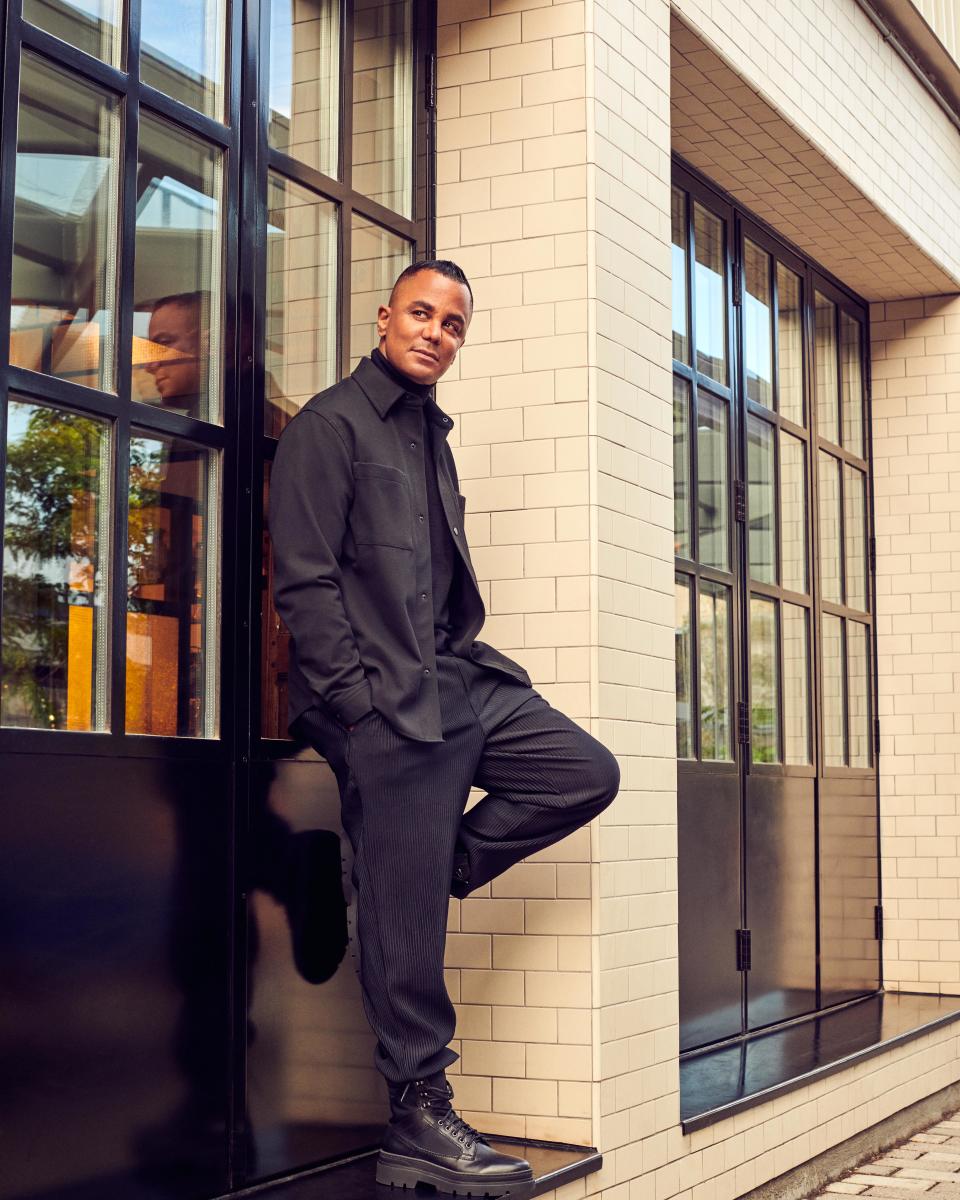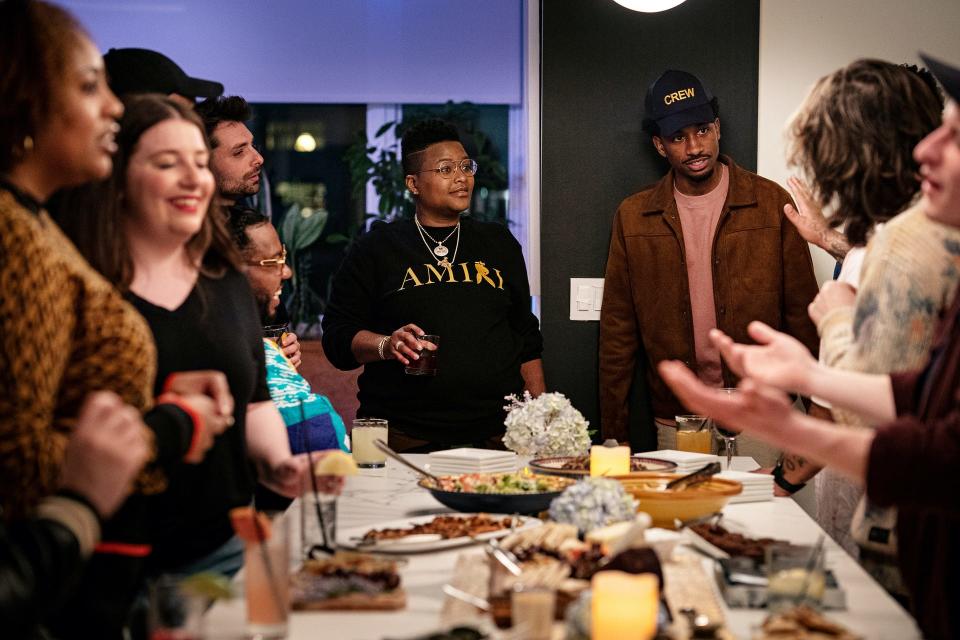Do stereotypes have a place in comedy? Phoebe Robinson, more comedians talk being in on the joke
- Oops!Something went wrong.Please try again later.
- Oops!Something went wrong.Please try again later.
This story is part of a USA TODAY series looking at the evolution of comedy and what the industry’s future looks like in a changing world.
Comedy in recent times has become a breeding ground for anger rather than laughter as the landscape changes around stereotypes and the line blurs between satire and blatant insults.
Stereotypes have long been embedded into American comedy. The jokes, more often than not, are aimed at marginalized communities, from the minstrel shows of the 1830s to the portrayals of people of color on screen and modern day jabs at the LGBTQ community.
A method for some of trying to unify people has now divided audiences across generations on whether a stereotype is relatable or harmful.
One person's "repulsive" might be another's "hysterical," says comedian Mo Amer.
"It's the thing about standup, it's so subjective, right? That’s what gets lost in this whole conversation, how subjective it really is," Amer says.

"Mr. Bean" star Rowan Atkinson recently addressed the subject of comedians facing backlash to the Irish Times and said the craft inherently "is to offend, or have the potential to offend … Every joke has a victim. That’s the definition of a joke."
Amer, who is gearing up for his Netflix series "Mo," , says: "How you talk about (stereotypes), how you push forward, who is keeping the dialogue open to have those conversations and push forward and be better as a society and artistically … that’s what I think about it."
Still, a question persists with creators and audiences: Are stereotypes necessary to be funny?
"To keep with the times and celebrate more voices, of course (comedy) has to be updated," author and comedian Phoebe Robinson says, adding it's important to "not rely on what worked before and push the genre further."
Robinson, whose 2018 book "Everything's Trash, But It's Okay" is now a Freeform comedy series, says that she tries "to come from a place of truth" and writes specific scenarios that people can relate to.
"I tend to go that route as opposed to being very 'first thought,' aka stereotypical, in my comedy," says Robinson, a "2 Dope Queens" alum.
When done right, stereotyping certain communities casts a catchall for people to bond over a shared experience. They can make you feel seen: Issa Rae's "Insecure" ignited Black Twitter every Sunday; "Gentefied" visualized various Mexican-American experiences; "Grace and Frankie" showed a different perspective on aging; "Pose" displayed the reality of the LGBTQ ballroom scene in the 1980s and 1990s.
Stereotypes also divide lovers of the genre, comedians say, as debates arise about what makes something funny and who's allowed to be behind the joke.
How comedians address stereotypes
Between 9% and 35% of movie characters upheld stereotypes from "martial artist" to "exotic women," according to a 2021 study led by the Geena Davis Institute on Gender in Media examined representation in the highest-grossing films between 2010 and 2019. The study ranked roles written about people of color by how often racial tropes were depicted, concluding Native American roles ranked the highest, with 34.6% of characters perpetuating stereotypes, followed by Asian and Pacific Islander characters (19%), Latinx (14.2%), Middle Eastern (12%) and Black (9%).
The disconnect between various Native communities' true experiences and the caricaturized version seen on screen boils down to stereotypes established in everything from Westerns to Disney's "Pocahontas." Today, Indigenous creators like Sierra Teller Ornelas are flipping the script.
"Native Americans will be in on the joke and they will not be the jokes," says co-creator Ornelas of her show "Rutherford Falls."
While many stereotypes regarding Natives have been largely deemed inappropriate, Ornelas found "there was a sort of overcorrection where we became these sort of mythical perfected creatures who liked to talk to trees." One Season 2 episode shows contrasting perspectives on a debate Natives get wrapped into every year: Halloween and cultural appropriation.
"It's really helpful to have multiple Native characters in the show. … You can have a subject matter that not every Native person sees eye to eye on because that's how the world actually is," she adds.

That authenticity is where there's strength in addressing stereotypes, agrees actor Yanic Truesdale. "The God's Favorite Idiot" actor believes poking fun at yourself allows other people to relate to you. In his case, Truesdale has leaned into his identity as a middle-aged man who is rediscovering himself and his purpose.
Comics today may be going through that same arc of self-discovery, with playing into stereotypes ultimately depending on the generation a comedian is attempting to reach, comedians say.
"I like when comedy is rooted in some sort of pain and reality. To me, it makes it funnier," Truesdale says.

Sam Jay's HBO Max series "Pause with Sam Jay" takes an open approach to stereotypes in Season 2's second episode, which examines the relationship between Black and white people in America through a discussion with a therapist and pure comedy.
Some comedians decry the idea of speaking directly to the demographic they may offend, but Jay says she prefers to engage. In her experience, getting uncomfortable about divisive topics allows her to "move the conversations that we've been having in a circular way and push them forward."
Comedy is moving in separate directions: Diversification and divisiveness
As the political and social landscapes become more polarized – and as Americans grow tired of the divisiveness – the online discourse around comedy is getting louder.
Katt Williams addressed the discourse around a comedian's responsibility on Joe Budden's podcast in June 2021, telling the host, "(People) weren’t all that extremely funny back when they could say whatever they wanted to say."
He also suggested comedy is all about pleasing "the most amount of people with your art" and that sensitivity isn't the worst thing. "If these are the confines that keep you from doing the craft God put you to, then it probably ain’t for you."
There may be misconceptions that comedians of the past said whatever they wanted, without consequence. After four episodes of Richard Pryor's NBC talk show, he was booted off the air for often using the n-word and critiquing white institutions. George Carlin and Lenny Bruce were also arrested throughout their careers for obscenity in their content. They weren't widely liked by the establishment but were later decorated for fighting against censorship.
In that regard, are the Dave Chappelles and Ricky Gervaises of the world doing a service by pushing back in their own ways? Is it just a matter of time for people to come to appreciate the no-holds-barred style towards marginalized groups?
The jury is still out on stereotyping, comedians say, with some advocating for a right way to incorporate it into the genre and others saying it's an unfortunate part of the growth process in developing comedy.
Standup comedian Alison Lieby, who stars in off-Broadway's "Oh God, A Show About Abortion" says "part of the learning curve" for many comedians happens after they "end up getting canceled for stuff they said a long time ago." (Despite the threat of being "canceled," comedians who have faced large-scale backlash, such as Chappelle and Gervais, still have blossoming careers and loyal fanbases.)
Comedy relies on stereotypes to a degree, Lieby says. Some comics may land on a joke that is "insensitive," but it's part of the "process of learning how to write jokes that are not," she explains.
Comic Shane Gillis was most notably hired and fired from "Saturday Night Live" in 2019 before his first appearance after racist and homophobic jokes on his podcast resurfaced. Executive producer Lorne Michaels called the language Gillis used "offensive, hurtful and unacceptable."
Gillis boasted that he is "a comedian who was funny enough" to get the job in the first place. In another tweet, he wrote: "I’m a comedian who pushes boundaries. I sometimes miss. If you go through my 10 years of comedy, most of it bad, you’re going to find a lot of bad misses. … My intention is never to hurt anyone but I am trying to be the best comedian I can be and sometimes that requires risks."
Some comedians will co-sign stereotypes because the jokes don't offend them, while others hit back.
Ornelas is watching in real time the shift of including Native Americans in comedy. The "Rutherford Falls" co-creator said she reflected with FX's "Reservation Dogs" executive producer Sterlin Harjo on what it's like having two comedy series with Native American storytelling airing at the same time. "Our children will only know a world in which Native people get to be funny on television," she says.
While Truesdale understands the need for representation, especially when certain marginalized groups have "very little opportunity," he worries about where the emphasis on diversity is headed.
"I fought my whole life to play characters not based on their color. And if I can only play Black people that are from Montreal and that are French-Canadian, because that's what I am, that's silly to me," Truesdale says. "I find it a little disheartening, that this is where we're at. This is art. … We're not doing a documentary."
It's not to say that art shouldn't imitate life, Truesdale says. It's one of the reasons he signed on with former "Gilmore Girls" co-star Melissa McCarthy to "God's Favorite Idiot," which revolves around tech support employee Clark Thompson (Ben Falcone), who suddenly becomes the least-likely messenger from God amid an impending apocalypse. "It's obviously a bit of a take on the state of the world – we're not doing great. I think it is nice to be able to laugh about it," he explains.
More: Dave Chappelle slammed over jokes during surprise appearance at John Mulaney show
Does comedy need a makeover, and what's the best approach?
The future of comedy isn't something you can neatly fit into a box, though comedians have thoughts on how to continue elevating the genre as times change.
Ornelas says, "Inherently comedy spoils, right? It's built to be obsolete."
Jay adds that she doesn't "hold comedy to the specific fire" of needing growth. "As a society, we're shifting and comedy is a part of that shift."

Jay is continuously pushing conversations about stereotypes on her show, "Pause." She's also found herself battling between being an educator and taking a step back from having to always discuss Blackness. From her experience writing on "SNL," the comedian says, "When a Black host comes you're like, 'Oh, now they're about to tap me because it's Black people day.'"
Being in a writers room with other creatives of various backgrounds lends itself to natural checks and balances about stereotypes, comedians agree. Robinson adopted a "why not me/him/her/them" ethos when crafting "Everything's Trash," amplifying writers of color and other marginalized communities.
"That breath of fresh air absolutely pushed all of us to keep thinking outside the box in addition to the pros who just come up with a killer punchline in like five seconds," Robinson says.
While Ornelas says she "deeply believes" in the concept of no stories about us without us; there needs to be room for more perspectives: "I think it makes the stories more complex. I think you're gonna hear funnier stories."
Contributing: Kelly Lawler
This article originally appeared on USA TODAY: Stereotypes in comedy: Phoebe Robinson, Mo Amer, more on purpose, harm

